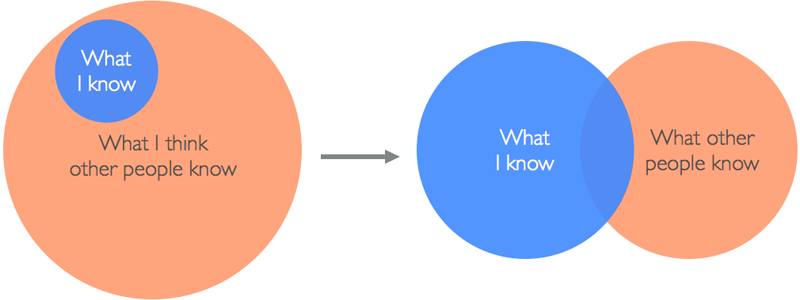
8 Tips For Overcoming Impostor Syndrome I Wish I Had Known Sooner
Director of Engineering @ Buffer
Impostor syndrome is a psychological phenomenon in which people are unable to see their own accomplishments, dismissing them as luck, timing, or as a result of deceiving others into thinking they are more intelligent and competent than they believe themselves to be.
Impostor syndrome is much more common that you’d think—o
ver 70% of people have experienced it at one time or other in their lives. It is known that lots of entrepreneurial and high-achieving women have it, but I’ve also found that it’s pretty common in men, too.
In fact, it seems like people in the software or online industries present lots of cases of impostor syndrome.
The speed at which technologies grow means you learn new things in almost every project, and that may make you feel like you are not performing as you should (or that you aren’t in control of what you are supposed to be an expert in).
When problems start to arise, lots of times they are already solved by somebody else. In environments like that, it’s easy to feel you aren’t smart enough.
I’ve felt like this sometimes. Receiving positive input about my performance or work, and not believing it just because what I did was easy, or I got lucky. Or I just dismissed those opinions, thinking that if a real expert came in and looked at what I had done, he would show everyone that I was a fraud.
When that fear strikes, you start thinking that everyone is smarter than you, that there are lots of things that you don’t know that everyone else already knows, and that they are expecting you to know them, too.
But there are ways to reverse this cycle and overcome impostor syndrome. Here are 8 steps that can help.
8 steps to overcoming impostor syndrome

- Recognize that it exists.
- When you receive positive feedback, embrace it with objectivity and internalize it. By denying it, you are hurting that person’s judgement.
- Don’t attribute your successes to luck.
- Don’t talk about your abilities or successes with words like “merely,” “only,” “simply,” etc.
- Keep a journal. Writing your successes and failures down gives you a retrospective insight about them, and re-reading them makes you remember equally both of them.
- Recognize that the perfect performer doesn’t exist, and that problems will pop up eventually. Take them as little fires under you that make you move forward.
- Be proud of being humble.
- Remember that it’s OK to seek help from others, and that even the best do it.
Extra tip by Hackbright Academy’s blog: Accept the fact that there are things that you do not know, there are things that you will never know and there are things that you can decide to learn. A beginner’s mind can be a very big advantage!
This post originally appeared on my personal blog. Go there to find more posts on engineering, productivity and more.
Image credit: Alicia Liu
Try Buffer for free
180,000+ creators, small businesses, and marketers use Buffer to grow their audiences every month.
Related Articles

I've tried 57 productivity tools in the past year. These are the ones I keep coming back to.

Looking for some low-lift ways to make yourself happier? Here's some of the best research that we've found on personal happiness.

I went from occasional AI user to power user in months. How? My mindset for how to approach AI evolved. Now, I reach for AI every day. I once read that professionals aren’t going to be replaced by AI, rather, they will be replaced by other professionals who use AI. This idea that someone who leverages AI will perform better at their work is now supported by research. Harvard Business School published a paper where they compared a group of consultants using AI to another group that wasn’t using